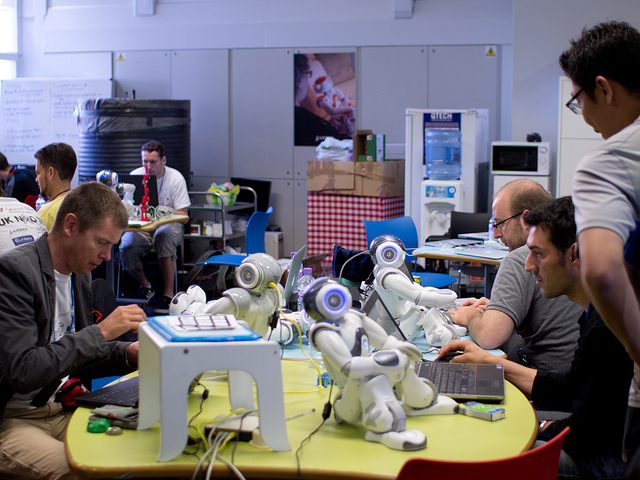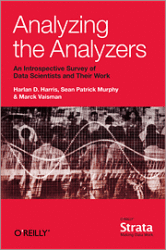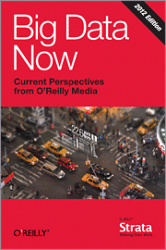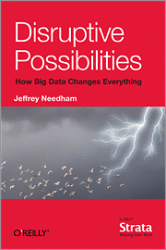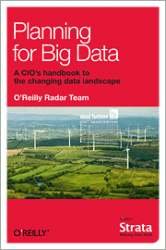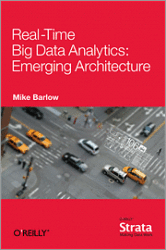PHP Women are organizing CODECONNEXX, a two-day, one track conference for web developers. This conference is not only focused on technical issues – every technical talk will be followed by a soft skills talk. These inspirational talks offer good advice and tips on how to become more confident, having more fun at work, be a better member of the team and much more. They are:
- Teach a Man to Fish — Lorna Mitchell
- Be more productive by taking better notes — Adam Brett
- Working for FUN — Erika Heidi
- Building Better Developers — Rowan Merewood
- Just Google it! – How to become a better developer using search — Carl Vuorinen
- Advice for young developers: Get the job and stay cool — Richard Askew
- Things I Believe Now That I’m Old — Ross Tuck
- The Mikado Method — Pascal de Vink
There will also be plenty of social opportunities to get to know the other attendees. This conference not only helps you bridge the gap between work and life, it will help you connect with each other as well. Even though, the conference is organized by a User Group, everyone is invited.
…but who are the PHP Women?
 This inclusive, global user group provides a support network within the PHP community. The main aim is to provide a network of support in hope that women in the industry do not feel alone and isolated.
This inclusive, global user group provides a support network within the PHP community. The main aim is to provide a network of support in hope that women in the industry do not feel alone and isolated.
How is it done?
PHP Women work on:
- helping women become more involved with the community
- increasing female attendance at conferences as speakers and attendees
- providing a “female friendly” professional atmosphere
CODECONNEXX will take place in Maastricht, The Netherlands, on November 8th and 9th and will be preceded by an all day workshop. Why not get your ticket now!
 Open Source Software is one of the most dynamic resources for business: the Open Source philosophy of code availability and redistribution is actually a great opportunity for the development of a more flexible, responsible and reactive model in business and organisations in IT management.
Open Source Software is one of the most dynamic resources for business: the Open Source philosophy of code availability and redistribution is actually a great opportunity for the development of a more flexible, responsible and reactive model in business and organisations in IT management.
Next September 19 and 20, Prato will host a conference on Open Source Software with several worldwide names of Open Source philosophy and ICT innovation.
Arno Valley: IT friendly
For the first time the city of Prato, set in the Florence area – one of the most “IT friendly” areas in Italy – will host OSS4B: Open Source Software for Business. This international conference promotes the adoption and usage of open source software both in business and mission-critical environments.
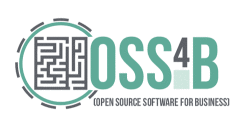 OSS4B is a two-day event of talks and workshops with international speakers who will cover all the features of Open Source Technology: hardware solutions, methodologies and procedures of project management and organisation, best practice principles, business models, research and development, training, marketing, social media engagement, licensing and many more.
OSS4B is a two-day event of talks and workshops with international speakers who will cover all the features of Open Source Technology: hardware solutions, methodologies and procedures of project management and organisation, best practice principles, business models, research and development, training, marketing, social media engagement, licensing and many more.
OSS4B’s target audience is CEOs, developers, database administrators and network and Sys Admins, as well as project managers from the fields of finance, technology, information, data, marketing, risk/security, law, networking, web, mobile and others.
Kim and Dragos, DevOps and Kanban at OSS4B
The two main focuses of OSS4B are DevOps; the method of integration between software development and information technology, and Kanban; the scheduling system for Lean and Just-In-Time Production.
- Gene Kim, researcher focused on IT operations security and compliance, co-author of Tripwire and author of the best-seller “The Phoenix Project: A Novel About IT, DevOps and, Helping Your Business Win”
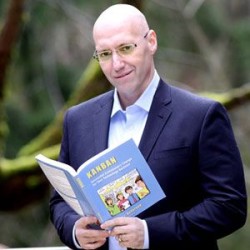 Dragos Dumitriu, Kanban Training and Coaching for Software Engineering and Service Delivery, General Manager at David J. Anderson and Associates Inc, a global management consulting firm providing Lean and Kanban solutions improving performance, communication, and collaboration for knowledge workers.
Dragos Dumitriu, Kanban Training and Coaching for Software Engineering and Service Delivery, General Manager at David J. Anderson and Associates Inc, a global management consulting firm providing Lean and Kanban solutions improving performance, communication, and collaboration for knowledge workers.
Both Gene Kim and Dragos Dumitriu will be in Italy as speakers for the very first time. Dragos will also be teaching a workshop on Kanban on September 23rd and 24th.Register here.
Networking at OSS4B!
OSS4B 2013 is a great opportunity for those working in ICT to learn something new and improve their skills. This is a fundamental part of the “continuous improvement” culture that knowledge workers of today value – especially when dealing with open source software.
Futhermore, being able to build and cultivate connections and relationships, both professionally and personally, is another important aspect of succeeding in any work environment, not just ICT. Networking and building professional connections is what OSS4B is also about.
“Open Source Software for Business” represents a unique professional development opportunity in Europe. Inspiring speakers will address key organisational issues and be available to answer your questions.
From Wednesday 18th right through until the evening of Friday 20th September there will be various events where participants can meet, interact and share common interests or experiences. Much attention has been given to social events, ensuring that OSS4B participants unite to form a connected and interactive community throughout the conference.
Value for money: not only does the registration fee include all of the above, it also covers your meals (coffee breaks, lunch breaks and Thursday’s dinner) and, thanks to our sponsors, we are offering the Italian “aperitivo” that will follow the conference.
As a final note, I encourage you to read the “IT Revolution Manifesto” written by Gene Kim (Opening Keynote Speaker at OSS4B), Kevin Behr and George Spafford.
OSS4B: a family friendly conference
While speakers and attendees are busy with OSS4B 2013, their families (including children) will have the chance to participate in a special programme to ensure they make the most of their stay in Tuscany. Fun activities are scheduled throughout the conference, the weekend and the workshop.
The organizers of OSS4B are offering a 35% discount to the friends of O’Reilly. To benefit from this discount, please enter promo code OREIL35952201309 when registering.
“There is no doubt that Strata Conference is a great magnet for top big data talent and that it has served its audience well – hungry for inspiring content on the latest and greatest big data and data science developments.” – Strata Attendee
The future belongs to those who understand how to collect and use their data successfully. And that future happens at Strata.
The best minds in data will gather in London this November for the O’Reilly Strata Conference – to learn, connect, and explore the complex issues and exciting opportunities brought to business by big data, data science, and pervasive computing.
Prior to the event, O’Reilly is offering FREE Data Reports – the latest insights in data science and big data from our editors, authors and speakers.
- Analyzing the Analyzers: A Survey of Data Scientists and Their Work
- Big Data Now: An Anthology of O’Reilly Radar’s Data Coverage
- Dirsruptive Possibilities: How Big Data Changes Everything
- Planning for Big Data: A Handbook for the Changing Data Landscape
- Real-Time Big Data Analytics: Examine the tools and technologies driving real time big data analytics
|
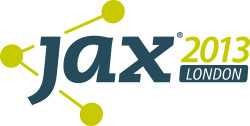 Our favourite Java friends are back with the 6th edition of the JAX London conference this October. With a heap of leading experts, thinkers and practitioners on hand, JAX should offer up all the technical brain candy an inquisitive mind could desire.
Our favourite Java friends are back with the 6th edition of the JAX London conference this October. With a heap of leading experts, thinkers and practitioners on hand, JAX should offer up all the technical brain candy an inquisitive mind could desire.
And a certain bookseller will be there once again, adding a touch of French chic to proceedings…
Those of you returning will no doubt look forward to the late night whisky-swilling exploits of certain speakers (who shall remain nameless to protect their false innocence), and the often heated debates natural when a cast of characters from more than 20 countries converge on one unsuspecting venue.
LONDON CALLING – MIND THE GAP
Here’s a selection of highlights from the JAX London schedule:
 Oliver Gierke, co-author of Spring Data and software engineer at Pivotal, will be giving two talks – Spring Framework 4 – a guided tour and Spring Data JPA – Repositories done right. His first will give a practical overview about fundamental infrastructure improvements such as Java 8 support and the integration with the latest Java EE APIs. The second session introduces the Spring Data project in general with a focus on the JPA module that allows developers to easily implement JPA based repositories in a sophisticated way. The presentation is 80% hands on which means less slides, more code :) – that has to be a good thing!
Oliver Gierke, co-author of Spring Data and software engineer at Pivotal, will be giving two talks – Spring Framework 4 – a guided tour and Spring Data JPA – Repositories done right. His first will give a practical overview about fundamental infrastructure improvements such as Java 8 support and the integration with the latest Java EE APIs. The second session introduces the Spring Data project in general with a focus on the JPA module that allows developers to easily implement JPA based repositories in a sophisticated way. The presentation is 80% hands on which means less slides, more code :) – that has to be a good thing!

 Arun Gupta, author of Java EE 7 Essentials and Java EE 6 Pocket Guide, is a Java EE & GlassFish Evangelist working at Oracle. His first session will provide a primer on WebSocket and Server-Sent Events and their supported use cases. It explains WebSocket support in the Java programming model, from a simple annotation-driven programming model and integration in the Java EE containers using JSR 356. Java EE 7: Boosting Productivity and Embracing HTML5 will provide a code-intensive introduction to the updated Java EE 7 platform with several live demos shown during the talk.
Arun Gupta, author of Java EE 7 Essentials and Java EE 6 Pocket Guide, is a Java EE & GlassFish Evangelist working at Oracle. His first session will provide a primer on WebSocket and Server-Sent Events and their supported use cases. It explains WebSocket support in the Java programming model, from a simple annotation-driven programming model and integration in the Java EE containers using JSR 356. Java EE 7: Boosting Productivity and Embracing HTML5 will provide a code-intensive introduction to the updated Java EE 7 platform with several live demos shown during the talk.
 Jamie Allen is the Director of Consulting for Typesafe and author of Effective Akka which is publishing in September. Apparently Lambdas are coming to the Java language in the upcoming release of Java 8! Many Java developers will never have experienced Lambdas before, so Jamie, in his keynote presentation, will discuss best practices for using Lambdas in Java and other JVM-based languages, and investigate how we can make these constructs more usable in production.
Jamie Allen is the Director of Consulting for Typesafe and author of Effective Akka which is publishing in September. Apparently Lambdas are coming to the Java language in the upcoming release of Java 8! Many Java developers will never have experienced Lambdas before, so Jamie, in his keynote presentation, will discuss best practices for using Lambdas in Java and other JVM-based languages, and investigate how we can make these constructs more usable in production.

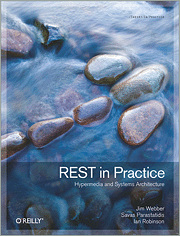 The popular Big Data Con London will be running alongside JAX London and will look at the data challenges being faced by enterprises today at a technical and strategic level. Ian Robinson, co-author of Graph Databases and REST in Practice, is an engineer at Neo Technology, currently working on research and development for future versions of the Neo4j graph database. In his session on Tuesday at Big Data Con he will be looking at some of the design and implementation strategies you can employ when building a Neo4j-based graph database solution, including architectural choices, data modelling, and testing.
The popular Big Data Con London will be running alongside JAX London and will look at the data challenges being faced by enterprises today at a technical and strategic level. Ian Robinson, co-author of Graph Databases and REST in Practice, is an engineer at Neo Technology, currently working on research and development for future versions of the Neo4j graph database. In his session on Tuesday at Big Data Con he will be looking at some of the design and implementation strategies you can employ when building a Neo4j-based graph database solution, including architectural choices, data modelling, and testing.
You read about the “UN-dress” in the Space Agency – Escape Velocity post a few months ago and in particular you were told that “…the dresses are dissolvable and will be filmed whilst they disintegrate in water”. We are now able to tell you that the filming will take place on Sunday 1st September details below.
———-
UN-Dress
Performance Sunday 1st September 6pm
Part of Arthouses 6.00pm – 9.00pm, 31st August & 1st September, Whitley Bay Film Festival, 2013
The Promenade, Victoria Avenue, Whitley Bay, Tyne and Wear. NE26 2BA
Map: Victoria Avenue, Whitley Bay
Walk down pedestrianised street to the sea, cross road (follow the signs).
Presented and created by artist Helen Schell. Performer; Rachael Allan. Festival director & film maker; Ema Lea ( Primate Productions Ltd ). Festival director & artist; Tracey Tofield.
This is a filmed performance of UN-Dress, a dissolvable ball-gown and it will last about 15-20 minutes. The dress will be dissolved in a pool of water; a transition from the materialistic wealth of the past to a naturalistic simplicity of the future.
History of Project – Undress: Redress:
This was a collaborative art & science project about smart materials and clever clothing. Original Dates: 2nd November 2011 – 23rd April 2012, and with on-going education projects and films.
Exhibitions:
Arts Centre Washington, and Eldon Square Shopping Centre, Newcastle, London Science Museum. Science Learning Centre North East. Durham Cathedral, (Culture Awards). Maker Faire, Centre for Life, Newcastle.
People: Helen Schell, artist and costume designer. Claire Willis, Science Learning Centre, NE. Dr Lorraine Coghill, NETPark & Durham University. Susannah Aynsley & Helen Green, Arts Centre Washington.
Project: The aim of this project was to create a programme of exhibitions, community and education projects exploring smart materials and clever clothing by making unusual and experimental costumes for public display. It was short listed for the Journal Culture Awards, north east in 2013.
Smart Materials Ball-gowns:
 UN-Dress: This costume is a flamboyant ball gown made from a PVOH thermoplastic film which dissolves in water. It was donated by Proctor and Gamble, and is the same material that is used for dish washer capsules. This dress was commissioned by Science Learning Centre North East as part of The Fashioning Science project.
UN-Dress: This costume is a flamboyant ball gown made from a PVOH thermoplastic film which dissolves in water. It was donated by Proctor and Gamble, and is the same material that is used for dish washer capsules. This dress was commissioned by Science Learning Centre North East as part of The Fashioning Science project.
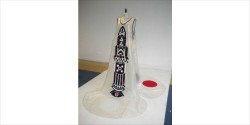 Rocket Dress: This costume is also made from dissolving thermoplastic and felt fabrics. The rocket imagery is part of an on-going series of work about space exploration and the cosmos.
Rocket Dress: This costume is also made from dissolving thermoplastic and felt fabrics. The rocket imagery is part of an on-going series of work about space exploration and the cosmos.
 The Dazzle Dress: This was made from Hi Vis safety jackets creating a futuristic and unusual ball gown which reflects back light in different circumstances. Ball-gown for the Queen of the Moon. It has been shown at the London Science Museum, Newcastle Maker Faire and Durham Cathedral.
The Dazzle Dress: This was made from Hi Vis safety jackets creating a futuristic and unusual ball gown which reflects back light in different circumstances. Ball-gown for the Queen of the Moon. It has been shown at the London Science Museum, Newcastle Maker Faire and Durham Cathedral.
Dresses can be seen here.
Information about Arthouses events.
For general enquiries contact email: info@whitleybayfilmfestival.org
NB: It may be cancelled if weather is very bad, but will go ahead if raining. The performance is being filmed and this will be presented at public events and shown online. Please avoid cameras if do not wish to be recorded on the film.
 WebExpo Prague is back. Taking place September 19th-21st, listen to talks from more than 80 local and international speakers on many exciting topics, meet over 1200 web enthusiasts from many different countries and professions and enjoy the parties!
WebExpo Prague is back. Taking place September 19th-21st, listen to talks from more than 80 local and international speakers on many exciting topics, meet over 1200 web enthusiasts from many different countries and professions and enjoy the parties!
Here’s just a selection of highlights from the conference schedule:
 The legend of the design process: Jesse James Garrett, Chief Creative Officer from Adaptive Path on how to create modes of engagement for the users.
The legend of the design process: Jesse James Garrett, Chief Creative Officer from Adaptive Path on how to create modes of engagement for the users.- Steve Corona, former founder of Twitpic, now Head of Platform API at Life360, will talk about scaling LAMP to millions of users.
- Christina Wodtke will share ideas about execution that matters in product development from her past experience in Yahoo!, MySpace and Zynga.
- James Abley is a technical architect at Government Digital Services. He will present his new equation: government = innovative + agile + value for money. Attend for an insight into the open source culture, tools and the story behind gov.uk.
 Polle de Maagt will be the first prime minister talking at our event. He is a part of the smashing Ministry of World Domination and will share his views on how stellar customer service, combined by sales concepts that are social by design, can catapult companies into the digital age.
Polle de Maagt will be the first prime minister talking at our event. He is a part of the smashing Ministry of World Domination and will share his views on how stellar customer service, combined by sales concepts that are social by design, can catapult companies into the digital age.- Oli Shaw is a talented creative who will talk about strategic design or “creating the glue to hold a vision together while it’s being made real”.
Buy tickets here at 20 % discount until 30th August.
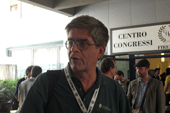 Around the turn of the millennium I was working on a C++ project. I had recently discovered the USENET newsgroups and I spent a lot of my time there. Back then, the life and soul of the Italian C++ newsgroup was a person who answered many questions with long, detailed and accurate posts: Alex Martelli.
Around the turn of the millennium I was working on a C++ project. I had recently discovered the USENET newsgroups and I spent a lot of my time there. Back then, the life and soul of the Italian C++ newsgroup was a person who answered many questions with long, detailed and accurate posts: Alex Martelli.
After a while Alex started giving answers like “Yes, you could do it like that in C++, but in Python it would be so much more convenient” or “I’ll illustrate the idea using Python as pseudo-code, since it’s so easy to understand”. A seed was planted.
During a trip to the US I bought myself a copy of ‘Learning Python’, by Mark Lutz and David Asher – not only a very good introductory book, but also one of the few available at the time! Those were the times when Python bore a ‘1’ as major release number and the Java implementation was still called ‘JPython’.
Another encouragement came from winning the O’Reilly prize draw at an ACCU conference, awarded by my kind host, Josette. I believe I chose just about every Python book they had in their catalogue at the time.
Alex started posting less and less on it.comp.lang.c++, and started gaining fame on the comp.lang.python newsgroup, where he soon earned the ‘martellibot’ nickname, for the number and quality of his posts. And their length. When I heard that he was to write ‘Python in a Nutshell‘ I thought that it would be no smaller than a coconut shell!
Around the same time several people drifted out of the newsgroup, to resurface a little later on the newly-founded Python one. Some of them are among the founders of Python Italia, regular speakers at conferences, and contributors to popular Python projects.
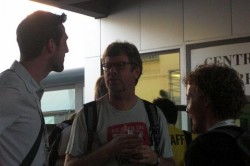 A few years later I met Guido at an ACCU conference. I still don’t know where I found the guts of to impose myself at his breakfast table, counting on his being too polite to send me off. I actually exploited Alex’s name as an ice-breaker, and we went on to talk of topics as diverse as build automation and exchange traded funds.
A few years later I met Guido at an ACCU conference. I still don’t know where I found the guts of to impose myself at his breakfast table, counting on his being too polite to send me off. I actually exploited Alex’s name as an ice-breaker, and we went on to talk of topics as diverse as build automation and exchange traded funds.
One day, I received an email from O’Reilly asking me where should they send my complimentary copy of the second edition of the ‘Python Cookbook‘. Now, I am not above accepting unsolicited presents, but I really could not understand why they decided to send it to me. When it arrived, it was accompanied by a letter saying that it was meant to thank me for my contribution. I was even more puzzled, because I’d never even posted any recipes to the online cookbook, then hosted by ActiveState. After a while I remembered mentioning the ‘stateless proxy‘ pattern in a comment to Alex’s ‘borg‘ recipe. I bet not even Stephen King ever got paid that much by the word! It was totally undeserved, considering that I had actually heard of the ‘stateless proxy‘ pattern from one of Alex’s posts on it.comp.lang. moderated.
Years passed, versions of Python came and went, and Python 3k became reality. Now rumours about Python 4 are starting to spread… As for me I’m still a rather sporadic Python programmer, even though I find it an invaluable tool. I even managed to collect a few modules I tend to reuse and put them on SourceForge. You can find them here.
![]() Rereading what I just finished writing I realise that it sounds almost as an O’Reilly advertisement, but all these things really happened and it is a fact that O’Reilly has been publishing valuable Python resources consistently for over a decade. This is not to say that theirs are the only worthwhile Python books: years ago I enjoyed Dave Beazly’s ’Python Essential Reference‘ as a reference and lately Wesley Chun’s ‘Core Python Programming’ helped me better understand some of the recipes from Dave’s ’Python Cookbook’, third edition”, but the people who led me through my career as a Python programmer are undoubtedly Alex… and Tim.
Rereading what I just finished writing I realise that it sounds almost as an O’Reilly advertisement, but all these things really happened and it is a fact that O’Reilly has been publishing valuable Python resources consistently for over a decade. This is not to say that theirs are the only worthwhile Python books: years ago I enjoyed Dave Beazly’s ’Python Essential Reference‘ as a reference and lately Wesley Chun’s ‘Core Python Programming’ helped me better understand some of the recipes from Dave’s ’Python Cookbook’, third edition”, but the people who led me through my career as a Python programmer are undoubtedly Alex… and Tim.
Nicola Musatti has been working both as developer and sysadmin for longer than he cares to admit, occasionally falling to one side or the other. He loves Python because it lets him tackle system administration tasks with the developer’s mindset. Other than Python he has programmed professionally in C, C++, C#, Java and various shells.
![]() You’ve probably heard about the growth of functional programming languages, and of Scala in particular. What you might be wondering is what that means for web frameworks, and that’s where Lift fits in.
You’ve probably heard about the growth of functional programming languages, and of Scala in particular. What you might be wondering is what that means for web frameworks, and that’s where Lift fits in.
 Lift is an open source web framework, built for the Scala programming language, and started by David Pollak in 2007. Version 1.0 shipped in 2009, and the latest version, 2.5.1, was released in June 2013.
Lift is an open source web framework, built for the Scala programming language, and started by David Pollak in 2007. Version 1.0 shipped in 2009, and the latest version, 2.5.1, was released in June 2013.
The “most powerful, most secure” title of this post is taken from the Lift home page. That power and security comes from Lift’s different approach to web development–it’s not another MVC framework, but instead has a different emphasis on development.
For example, templates (pages) in Lift have the property of being designer friendly. That means a designer can work on the page without having to gingerly step around any server-side scripting elements. That’s because Lift uses CSS classes to mark areas of a page for replacement on the server. Web editing tools work well with this, and Lift can get on and use the content without changes.
Another example is the way HTML form elements can be connected back to functions on the server. In some frameworks you wire a URL to code, extract values, and do something with them. You can do that in Lift, but you also have the ability to bind a function to input fields and forms. Your function can focus on what it needs to do, and Lift will take care of calling your function at the right time.
This form processing style extends nicely to Ajax. That function you wrote and connected to, say, a button, could just as easily return data or JavaScript back to the browser. The client/server round-trip is taken care of for you. Lift is great at getting this “plumbing” out of your way.
Features like this give great power but can be confusing at first. A tweet from a new Lift user captures it well:
BOOM! coding up a storm in Lift. Learning curve has been steep but well worth it. Great community on the forums.
— Andrew (@undrewb) August 11, 2013
My understanding of Lift improved by hanging out on the mailing list. Not just by asking questions, but by learning from what others in the community were discussing. I eventually tried to help answer some questions, which I think is a great way of learning. At about the same time my confidence was given a boost by seeing that FourSquare were using Lift. It’s an indicator that the technology is serious: that site has plenty of traffic.
I further grew my experience in Lift by building applications, first for internal company use, and then rolling out Lift for customers.
The “coding up a storm” comment about fun and productivity rings true for me. It’s probably most obvious in Lift’s superb Comet and Ajax support. This makes Lift a great platform for building interactive sites, from subtle server-push page updates to a dashboard, through to full social applications.
When it comes to other aspects of web development, Lift doesn’t force you down any particular route. With databases, for example, you get to pick what you want to use and how you want to work with it. Lift Record works well with relational databases, MongoDB and CouchDB. But you don’t have to use it if there’s something else you’d prefer, and you’re not going to miss out on the other features of Lift by going your own way.
Lift is productive, powerful, secure, mature, and has a great community. You can dig a little deeper in the three posts and small code examples I’ve posted at programming.oreilly.com. They cover REST, designer-friendly templates, Ajax, Comet, JavaScript and couple of other features of Lift. You should also check out the examples of Seven Things that makes Lift different.
Richard Dallaway is a partner at Underscore Consulting, the UK’s leading Scala consultancy, where he works on delivering software projects for clients. He’s a committer on the Lift project, focusing mainly on the modules system, and author of The Lift Cookbook: Recipes from the Community for Building Web Applications with Scala, published by O’Reilly.
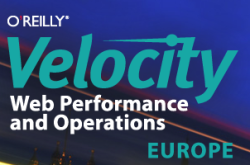 We all know about the problems women can sometimes face in technology so I’d like to focus on something much more positive. Technology is a changing industry, evidenced by high-profile women such as Marissa Mayer at Yahoo and Julie Larson-Green at Microsoft. Not only that, there are also the innovative and inspiring female techies, coders and programmers I meet on my conference trail – people like Anna Ravenscroft, who won this year’s Frank Wilson Memorial Award, Lorna Jane Mitchell, author of ‘PHP Web Services’ (and a few Josetteorama blog posts!), and Elizabeth Mattijsen, Perl 6 extraordinaire. Whilst we have a long way to go yet, the technology industry is diversifying and, in my opinion, is all the better for it.
We all know about the problems women can sometimes face in technology so I’d like to focus on something much more positive. Technology is a changing industry, evidenced by high-profile women such as Marissa Mayer at Yahoo and Julie Larson-Green at Microsoft. Not only that, there are also the innovative and inspiring female techies, coders and programmers I meet on my conference trail – people like Anna Ravenscroft, who won this year’s Frank Wilson Memorial Award, Lorna Jane Mitchell, author of ‘PHP Web Services’ (and a few Josetteorama blog posts!), and Elizabeth Mattijsen, Perl 6 extraordinaire. Whilst we have a long way to go yet, the technology industry is diversifying and, in my opinion, is all the better for it.
 Google is getting behind this, and have launched Women in Tech Conference and Travel Grants scheme. The initiative will encourage women to attend technical conferences across Europe, and they’ll be offering free registration for Velocity Europe in London, as well as up to €1000 toward travel and accommodation costs for female computer scientists. The event will take place on the 13th-15th, and will be the best place on the planet for web ops and performance professionals to learn from each other, exchange ideas with experts, and share best practices and lessons learned.
Google is getting behind this, and have launched Women in Tech Conference and Travel Grants scheme. The initiative will encourage women to attend technical conferences across Europe, and they’ll be offering free registration for Velocity Europe in London, as well as up to €1000 toward travel and accommodation costs for female computer scientists. The event will take place on the 13th-15th, and will be the best place on the planet for web ops and performance professionals to learn from each other, exchange ideas with experts, and share best practices and lessons learned.
Velocity started six years ago in America, and is now one of the most important and successful web ops, web performance and  dev ops events around. It’s grown to be an international organisation, with events happening in New York, Santa Clara, London and Beijing, and reaches a much wider and diverse range of people than ever before. Therefore Google’s Women in Tech Conference and Travel Grants, seems so in-line with the very ethos of Velocity, offering a chance for people to attend who may not have had the chance to otherwise.
dev ops events around. It’s grown to be an international organisation, with events happening in New York, Santa Clara, London and Beijing, and reaches a much wider and diverse range of people than ever before. Therefore Google’s Women in Tech Conference and Travel Grants, seems so in-line with the very ethos of Velocity, offering a chance for people to attend who may not have had the chance to otherwise.
To find out whether you’re legible for Google’s Women in Tech initiative, visit this page. The deadline for applications is 6th October. We’re looking forward to seeing you there!


